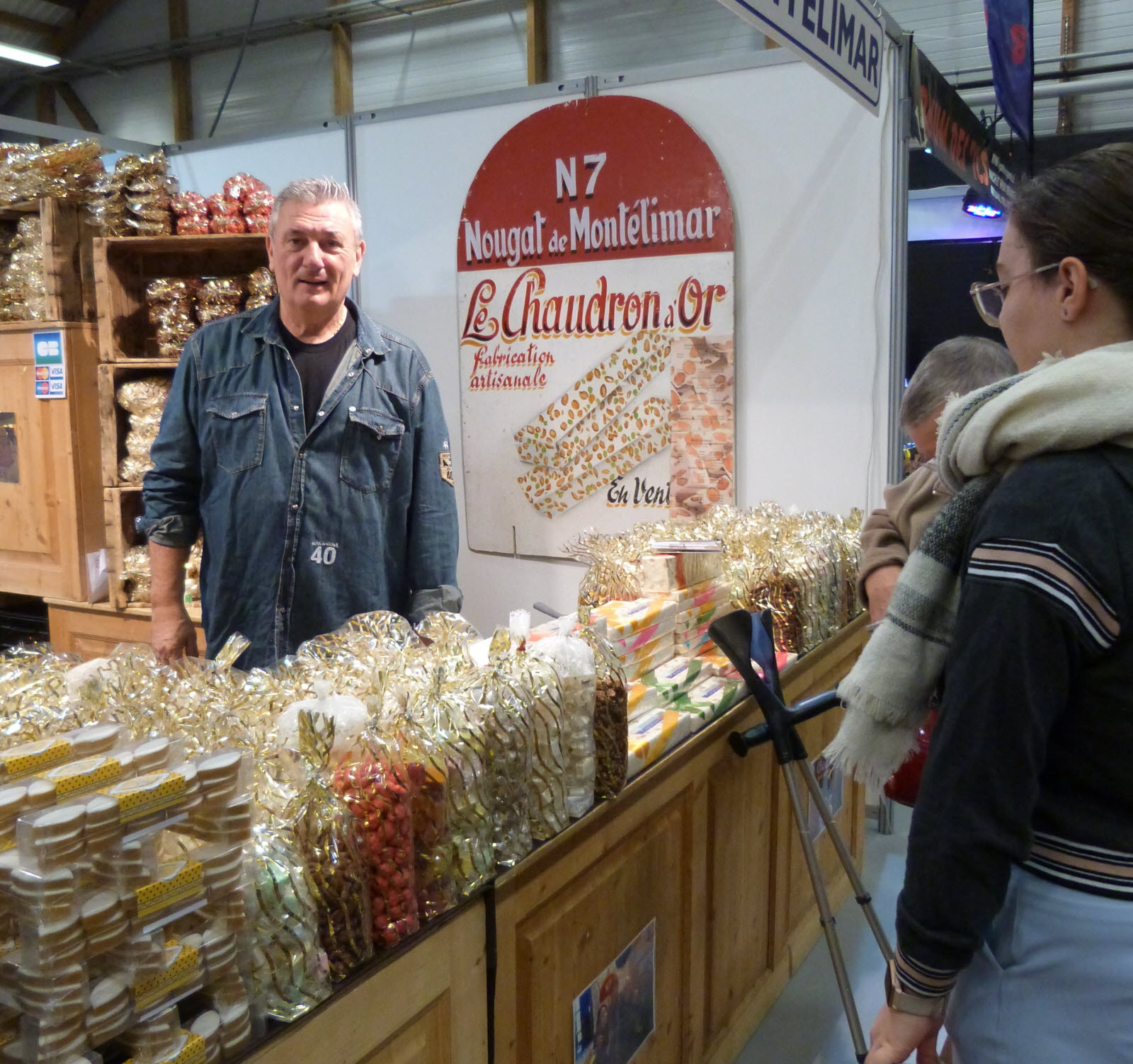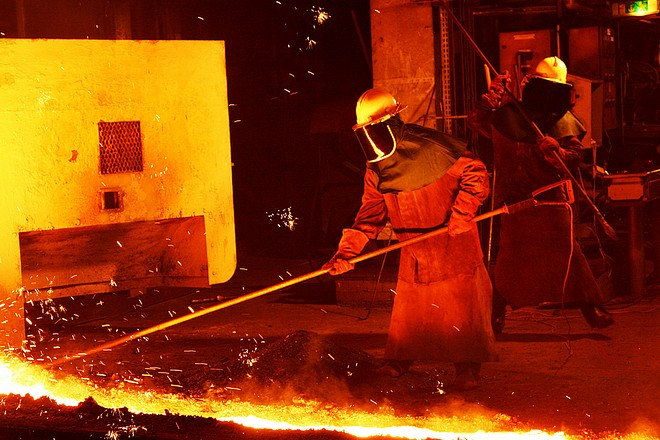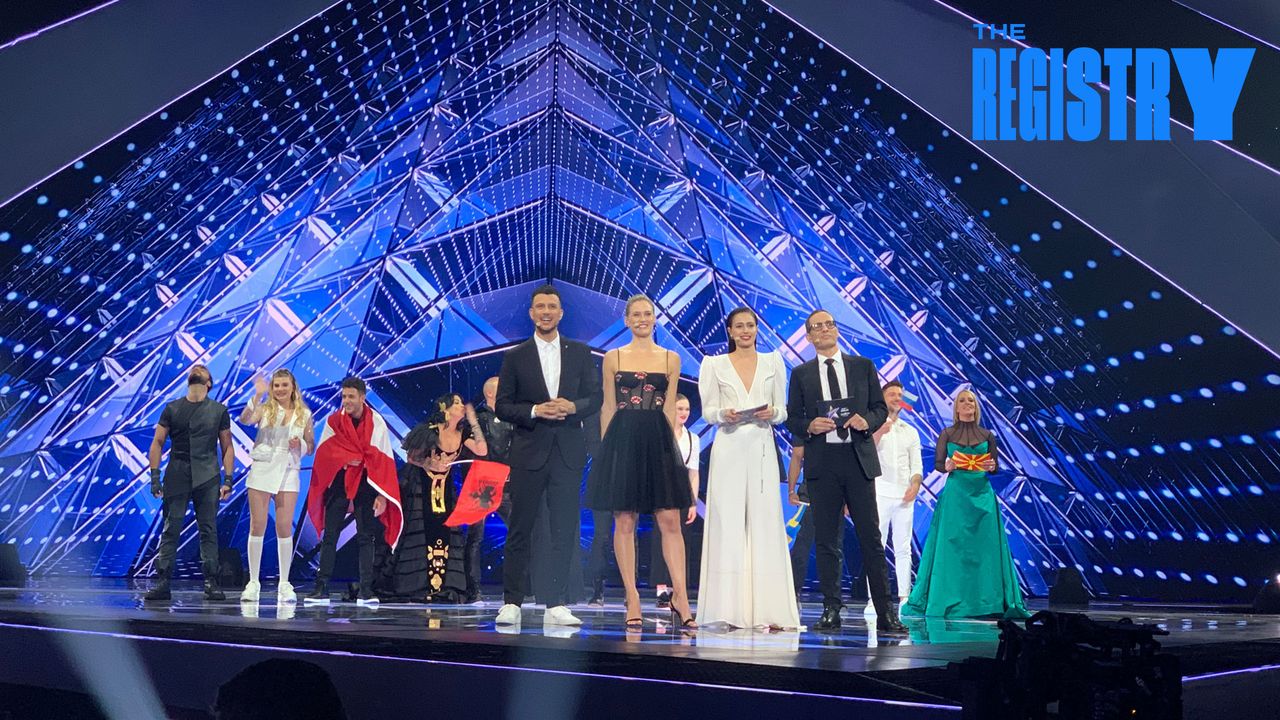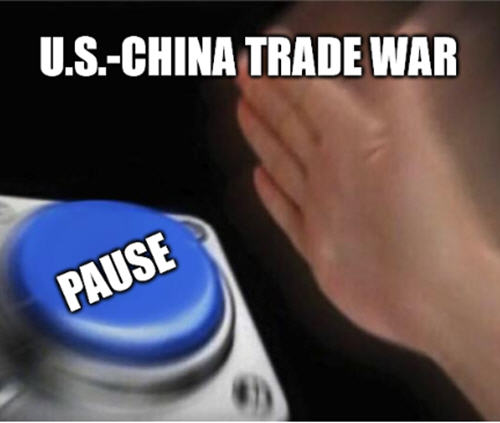Decarbonizing Steel: Eramet's Low-CO2 Manganese Alloy, EraLow

Table of Contents
Understanding the Environmental Impact of Traditional Steelmaking
The Carbon Footprint of Steel Production
Traditional blast furnace steelmaking is a notoriously carbon-intensive process. The production of steel relies heavily on coke, a coal-derived fuel, which releases significant amounts of CO2 during combustion. Manganese alloys, crucial for steel's properties, also contribute to the overall carbon footprint. The process is inherently energy-intensive, demanding substantial amounts of electricity and fossil fuels for heating and powering the blast furnace. Transportation of raw materials and finished products adds further emissions.
- CO2 emissions from coke production: Coke production alone accounts for a substantial portion of steel's carbon footprint.
- Energy consumption in the blast furnace: The high temperatures required for steelmaking result in massive energy consumption, often fueled by fossil fuels.
- Transportation emissions: Moving raw materials to the plant and finished products to consumers generates considerable carbon emissions.
The World Steel Association estimates that steel production accounts for approximately 7-9% of global anthropogenic CO2 emissions. This underscores the urgent need for sustainable alternatives.
The Need for Sustainable Steel Solutions
The demand for low-carbon steel is rapidly increasing, driven by a combination of factors. Stringent government regulations and carbon pricing mechanisms are pushing the industry towards decarbonization. Consumers are increasingly demanding sustainable products, prompting companies to incorporate environmentally responsible practices into their supply chains. Furthermore, many corporations are setting ambitious sustainability goals, aiming to reduce their environmental impact.
- Government regulations and carbon pricing mechanisms: Carbon taxes, emissions trading schemes, and other regulatory measures are incentivizing the adoption of low-carbon technologies.
- Consumer demand for sustainable products: Consumers are actively seeking out products made with sustainable materials and processes, including low-carbon steel.
- Corporate sustainability goals: Many companies have committed to reducing their greenhouse gas emissions, driving the demand for sustainable steel solutions.
Introducing eraLow: Eramet's Solution for Low-CO2 Steel
The Innovation Behind eraLow
Eramet's eraLow represents a significant breakthrough in sustainable steelmaking. Its unique production process dramatically reduces CO2 emissions compared to traditional manganese alloys. This is achieved through a combination of optimized energy use, the integration of renewable energy sources, and waste reduction strategies. The precise details of the process are proprietary, but Eramet highlights significant reductions in energy consumption and the use of recycled materials.
- Reduced energy consumption: Eramet's innovative process minimizes energy use throughout the production lifecycle.
- Utilization of renewable energy sources: The production incorporates renewable energy sources, further lowering the carbon footprint.
- Waste reduction strategies: Eramet has implemented strategies to minimize waste and maximize resource utilization.
Eramet holds patents on key aspects of the eraLow production process, protecting its innovative technology.
Key Properties and Benefits of eraLow
eraLow boasts superior characteristics compared to traditional manganese alloys. It offers excellent performance in steelmaking applications while maintaining or improving steel quality. This results in enhanced process efficiency and reduced energy consumption during steel production. Importantly, eraLow delivers equivalent or superior mechanical properties to traditional alloys.
- Improved steel quality: eraLow contributes to the production of higher-quality steel, enhancing its properties and performance.
- Enhanced process efficiency: The use of eraLow streamlines the steelmaking process, reducing production time and costs.
- Reduced energy consumption during steelmaking: eraLow's properties allow for more efficient steel production, lowering energy demand.
- Equivalent or superior mechanical properties: eraLow maintains or surpasses the mechanical properties of steel produced with traditional manganese alloys.
The Impact of eraLow on Steel Decarbonization
Reduced Carbon Emissions in Steel Production
The use of eraLow results in a substantial reduction in CO2 emissions compared to traditional manganese alloys. Eramet claims significant percentage reductions, enabling steelmakers to significantly lower their carbon footprint. Independent lifecycle assessments further support these claims, highlighting the environmental advantages of adopting eraLow.
- Specific CO2 reduction figures: Eramet provides quantifiable data demonstrating the CO2 emission reductions achieved through the use of eraLow.
- Case studies of successful implementations: Real-world examples showcase the effectiveness of eraLow in reducing CO2 emissions within steel production processes.
- Lifecycle assessments comparing eraLow to traditional alternatives: Independent studies confirm the significant environmental benefits of eraLow.
Contributing to a Sustainable Steel Supply Chain
The adoption of eraLow extends beyond immediate CO2 emission reductions. It fosters a more sustainable steel supply chain by reducing reliance on fossil fuels and promoting circular economy principles. By partnering with steel producers, Eramet is contributing to the UN Sustainable Development Goals and fostering positive impacts on local communities.
- Partnership opportunities with steel producers: Eramet actively collaborates with steel producers to facilitate the integration of eraLow into their operations.
- Contribution to UN Sustainable Development Goals: The use of eraLow directly contributes to achieving several UN Sustainable Development Goals, particularly those related to climate action and responsible consumption and production.
- Positive impact on local communities: The production and use of eraLow can positively impact local economies and employment opportunities.
Conclusion
Eramet's eraLow low-CO2 manganese alloy offers a compelling solution for decarbonizing steel production. Its key benefits include significant CO2 emission reductions, improved steel quality, and a contribution to a more sustainable steel supply chain. The innovative production process, superior performance characteristics, and commitment to sustainability make eraLow a crucial step towards a greener steel industry.
Eramet's eraLow is a crucial step towards a greener steel industry. Contact Eramet today to learn more about how eraLow can help your company achieve its sustainable steel production goals and contribute to a lower-carbon future. Explore the potential of low-CO2 manganese alloys and discover how eraLow can revolutionize your steel decarbonization strategy.

Featured Posts
-
 Demandeurs D Asile A Bourg En Bresse Plus De Consideration Plus De Solidarite
May 14, 2025
Demandeurs D Asile A Bourg En Bresse Plus De Consideration Plus De Solidarite
May 14, 2025 -
 Droits De Vote Eramet Acceder Aux Donnees Completes
May 14, 2025
Droits De Vote Eramet Acceder Aux Donnees Completes
May 14, 2025 -
 Understanding Enoteca Maria Nonnas Legacy And The Restaurants Identity
May 14, 2025
Understanding Enoteca Maria Nonnas Legacy And The Restaurants Identity
May 14, 2025 -
 The Rise Of Cross National Artists In Eurovision
May 14, 2025
The Rise Of Cross National Artists In Eurovision
May 14, 2025 -
 U S China Truce Fuels Global Stock Market Rally
May 14, 2025
U S China Truce Fuels Global Stock Market Rally
May 14, 2025
